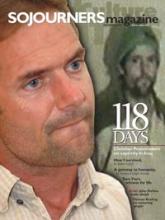"Advent is the beginning of the end of all in us that is not yet Christ," wrote Trappist monk Thomas Merton. It is the time Christians set aside for spiritual preparation for the birth of Christ celebrated at Christmas. Even as Christmas has become more secular, the Advent season still brings joy and the observance of ancient customs. Christian families find quiet moments lighting candles in the Advent wreath; children use Advent calendars to count the days until Christmas arrives.
Advent is also a pilgrimage. A time of sacred travel. It is a way that we answer what Goethe called "the holy longing." During Advent we will leave the place of our birth to journey to the birthplace of another. It is an invitation to be born again.
"There is great virtue in practicing patience in small things," wrote the 20th- century English mystic and artist Caryll Houselander, "until the habit of Advent returns to us." The disciplines of Advent are ones that teach us to do small things greatly, to do few things but do them well, to love in particular, rather than in general. This habit of small "successes" generates creativity, a sense of well-being, a generosity of spirit rooted in satisfaction. It generates hope.
Christians engaged in social transformation often get discouraged. We are acutely aware of the evils of the world. At times we despair or allow our anger at injustice to be the source of energy in our lives. Sometimes we actually create despair and depression in our lives when we only fight losing battles. It is mandatory that we yoke ourselves to disciplines that generate hope.
Read the Full Article
